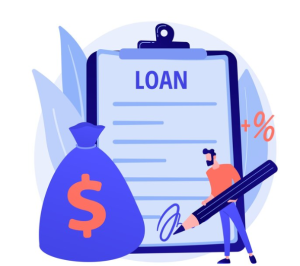Office Address
12150 SW 128th Ct,
Miami, Florida 33186
12150 SW 128th Ct,
Miami, Florida 33186
 " alt="A FHA Loan is a mortgage loan in the United States guaranteed by the U.S.">
" alt="A FHA Loan is a mortgage loan in the United States guaranteed by the U.S.">
The Federal Housing Administration (FHA) insures FHA loan. Essentially, the federal government provides insurance to FHA-approved lenders to help reduce their risk if a borrower defaults on their mortgage payments.
We’re here to make the FHA home loan process easier, with tools and knowledge that will help guide you along the way, starting with our FHA Loan Qualifier.
We’ll help you clearly see differences between loan programs, allowing you to choose the right one for you whether you’re a first-time home buyer or a repeat buyer.
Your appliance form contractor should also be suitable to use the manufacturer bond in mollifying form costs. When looking for a contractor, here are some useful tips to consider Here’s how our home loan process works:

There are many more features of FHA loans available to first-time homebuyers who are struggling with lower credit scores or no reserve for a down payment. Furthermore, with an FHA loan, making a low down payment is a big plus, as it is typically 3.5%. It is thus very helpful, unlike a lot of mortgages, where you need to previously save for five or more years to a minimum down payment. Furthermore, FHA has a wider credit score acceptance range, which allows people who might not qualify for a regular loan to get financing.
However, there are some key requirements for FHA loans. Borrowers must meet the following criteria to qualify:
Minimum Credit Score: While FHA loans are more lenient with credit scores, a minimum score of 580 is typically required for the 3.5% down payment option. For those with scores between 500 and 579, a higher down payment of at least 10% is required.
Debt-to-Income Ratio: FHA guidelines require a debt-to-income (DTI) ratio of no more than 43%. This means your monthly debt payments should not exceed 43% of your gross income. In some cases, exceptions can be made depending on the borrower’s overall financial situation.
Property Standards: The home being purchased must meet certain safety and livability standards. An FHA-approved appraiser will inspect to ensure the property is safe and habitable. This includes verifying that the home has no significant issues with the foundation, plumbing, electrical systems, and roofing.
Employment History: To qualify for an FHA loan, borrowers typically need to show at least two years of consistent employment or income history. This ensures that the borrower has the financial stability to repay the loan.
Pre-Approval: Before you spot the home you like, make sure to get pre-qualified for a loan through the Family Homekeepers Program. This action informs you of the maximum available funds and allows you to come up with an attractive offer when you decide on the property you want to purchase. The lender will assess your financial situation, such as your income, credit score, debts, and savings, to decide the maximum amount of the loan you can afford to buy.
Find a Home: One can then start the house hunt by scheduling showings for properties in his price range, now that he has been pre-approved. Having a real estate agent who is familiar with the FHA financing can assure that the property you choose is up to FHA standards.
Loan Application: Upon choosing a property, you then need to intake with the FHA loan solution. It includes presenting the necessary documentation, amongst which are the tax returns, proof of your income. Bank statements, and more importantly, other paperwork asked by the lender.
Home Appraisal and Inspection: The lender will arrange for an FHA-approved appraiser to evaluate the value of your dwelling and make sure that it complies with the set safety standards. Sometimes, the lender may require the borrower to make certain repairs before the loan can be completed.
Closing: After the approval of the loan and the provision of the appraisal. You are ready for the final step, the closing. At the time of closing, you will sign all necessary papers and will officially own the house. The lender will disburse the funds, and you’ll begin to pay your mortgage off according to your loan agreement.

There are different types of FHA loans to consider, depending on your specific needs and goals. These include:
FHA Fixed-Rate Mortgage: The FHA Fixed Rate Mortgage is the biggest of all FHA loans with a stable interest rate over the years. It is like a grove in the jungle providing you with a stable and fix path for loan repayment every month.
FHA Adjustable-Rate Mortgage (ARM): An FHA ARM has an interest rate that may move up and down due to changes in the market. The initial interest rate is usually lower. But it could go up in the future, in which case the cost of the monthly payments would be higher.
FHA 203(k) Loan: You can use the 203(k) loan if you’re buying a house that needs repairs or renovation. This program provides the buyer with additional funds, beyond the sales price, to finance the necessary work. Making the process easier for the purchaser.
FHA Energy-Efficient Mortgage (EEM): This mortgage allows people who want to renovate their house to buy an energy-efficient home. This type of mortgage will enable you to borrow money for the solar panels or the energy-efficient windows which will in the long run reduce the cost incurred in paying for energy.
FHA Loan for Manufactured Homes: An FHA loan can finance a prefab home’s purchase if you are thinking about buying one of them. It is a loan that is pretty much like a regular home purchase loan with cheaper down payment options and good rates as well.
FHA loans offer several advantages over conventional loans. Especially for those who may not meet the strict requirements of traditional mortgage programs:
While FHA loans offer many benefits, there are also some drawbacks to consider:
FHA loans are a great choice for homebuyers of their first house, those with bad credit. Is anyone interested in a down payment that gives them a lower rate? By partnering with a reliable lender and gaining a solid understanding of the FHA loan process. You can take advantage of its benefits and secure a property that suits your preferences. A fixed-rate mortgage, an FHA 203(k) loan for home renovations, or a different type of financing can be your choice. FHA offers a wide variety of mortgages ranging from the most common options to those that are less conventional, to enable you to get a home of your dream.
When a potential homebuyer goes through the FHA loan process. They need to make sure that they deal with those people who really know all the details of such loans. And that they can direct you through any stage.